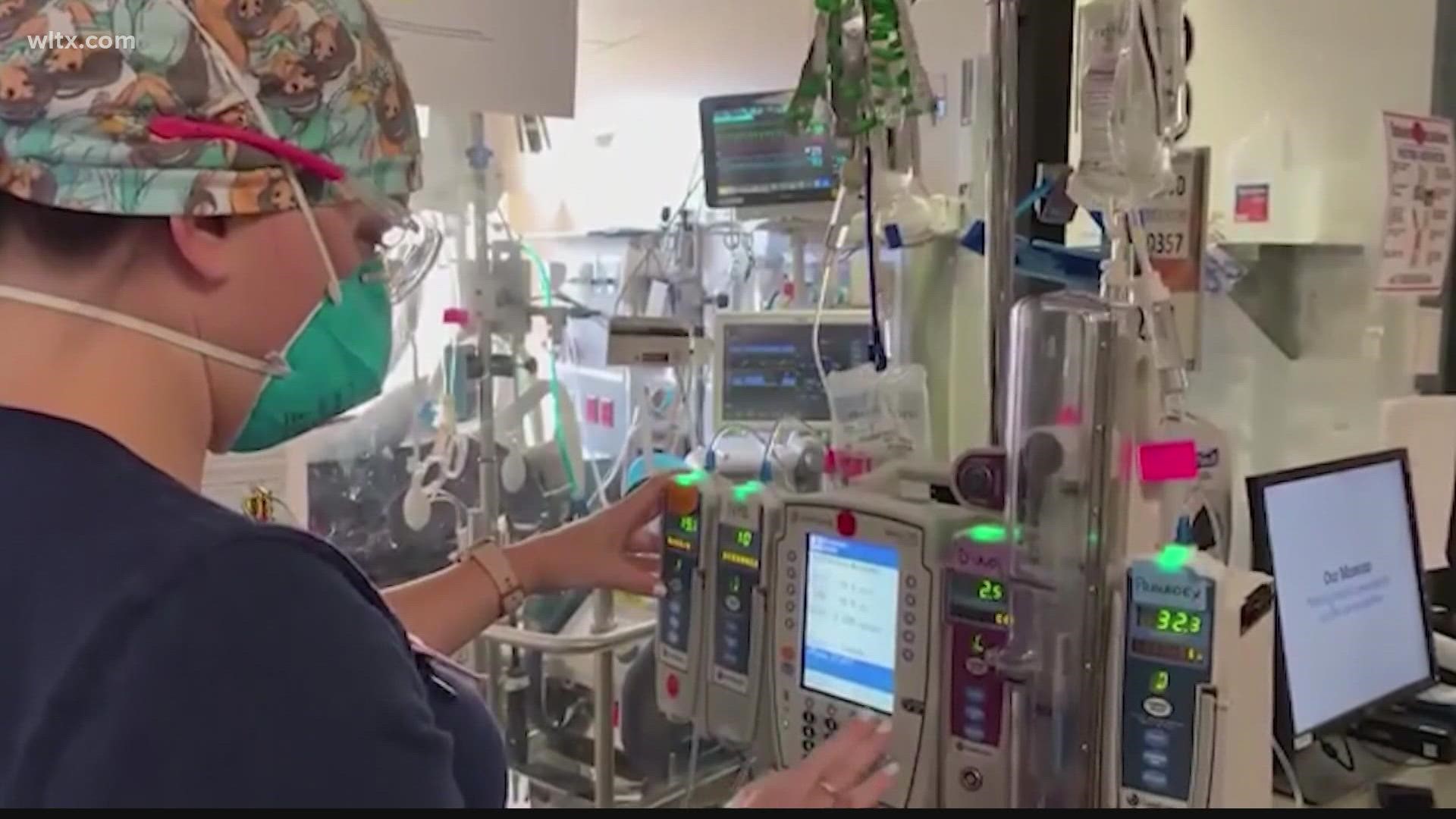COLUMBIA, S.C. — Prisma Health reports nursing vacancies have gone up 238 percent since August 2020. As many nurses start to feel the pressure, one nurse urges others to take care of themselves.
“Know when to take breaks. Get something to eat. Eat right. Eat a nutritious diet. Get some sleep. Learn how to delegate. Sometimes nurses think they can do it all,” said Midlands Tech nurse instructor Gwendolyn Richardson.
Over the past year, it’s been made evident that nurses are needed now more than ever.
“It is an excellent profession. It connects you with people. It allows you to care for people in a very real and deliberate way. It’s very gratifying and satisfying to know that you’re connecting with people in a very vulnerable time in their life,” said Prisma Health Executive Director of Nursing Levi Campbell.
However, the ongoing nursing shortage is making them harder to come by. Experts point to burnout as a major reason why.
“Folks have been, nurses in particular, have been going full steam ahead at the bedside for a long time, and so there is a component of this that people are just exhausted. They are tired of just this constant workload that they are facing day in and day out,” said Campbell.
Campbell also mentioned more than 46,000 jobs nationwide have been posted just this week. Most of the vacancies are in the medical-surgical units, telemetry, and ICU’s. The demand is growing.
“Probably since about mid-July, it’s been a pretty steady uptick. Anywhere from about 10-15% week after week in the demand for travel nurses,” said Campbell.
As travel nurses have stepped into fill the void, Richardson said they are often taking on the most difficult tasks.
“Nurses do not always feel as though that they have anyone that they can reach out to and talk to, you know so nurses leave the profession,” she said.
RELATED: 'My cup is empty': Texas ICU nurse says staff is losing morale as beds fill up, COVID cases surge
Prisma Health said it’s been proactive in making sure its workers feel supported through its Employee Assistance and Chaplaincy Programs. Campbell said senior and unit leaders check in on team members as well.
“They do everything that they can to make sure that the team members and especially the nurses know that we are there to help them, support them, and do whatever we can to make it through this crisis that we’re experiencing,” he said.
Campbell said the nursing shortage we’re seeing in the Midlands is reflective of the nationwide trends. He said he anticipates it will eventually level out as nurses begin to fill these vacancies.

